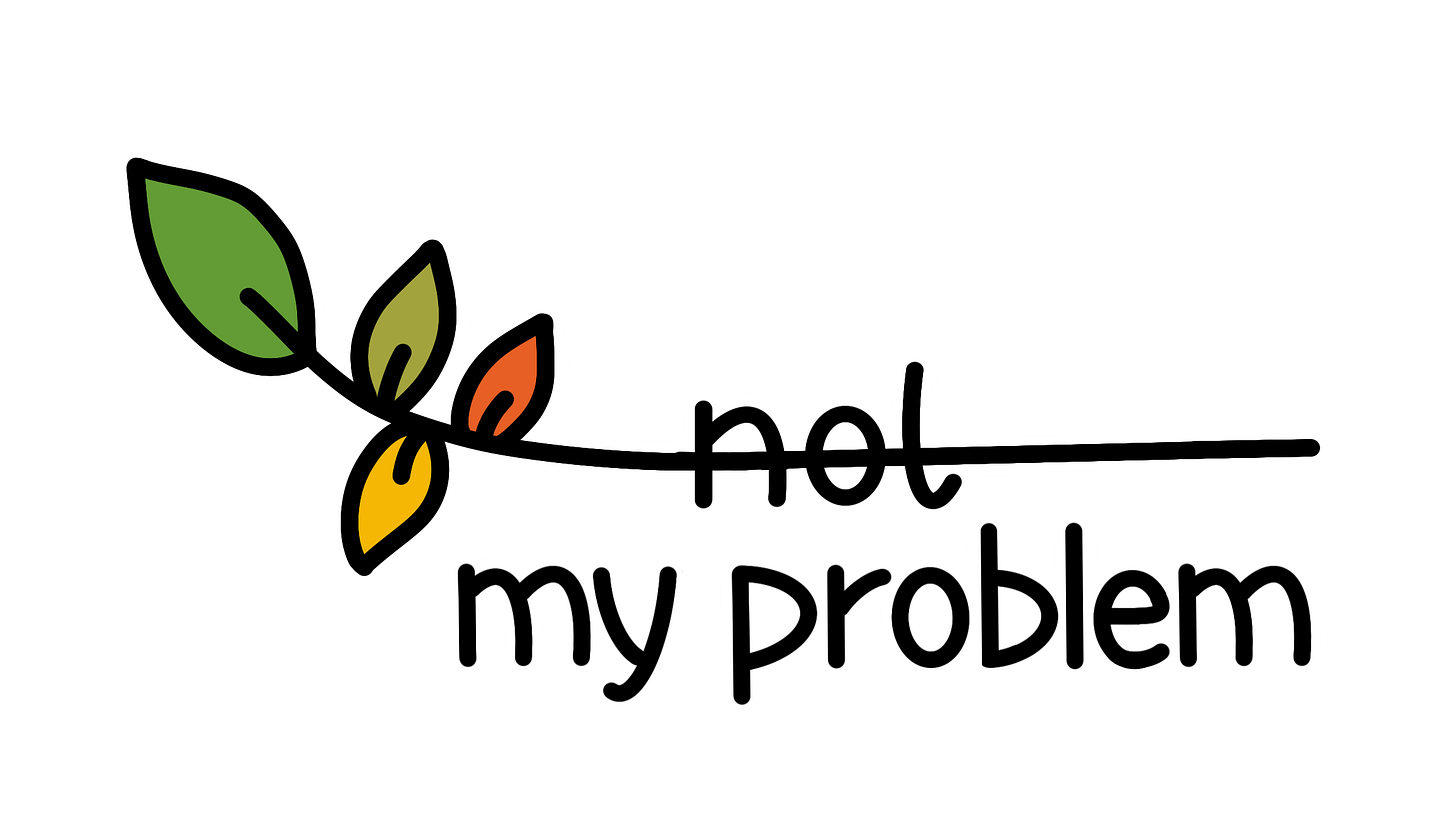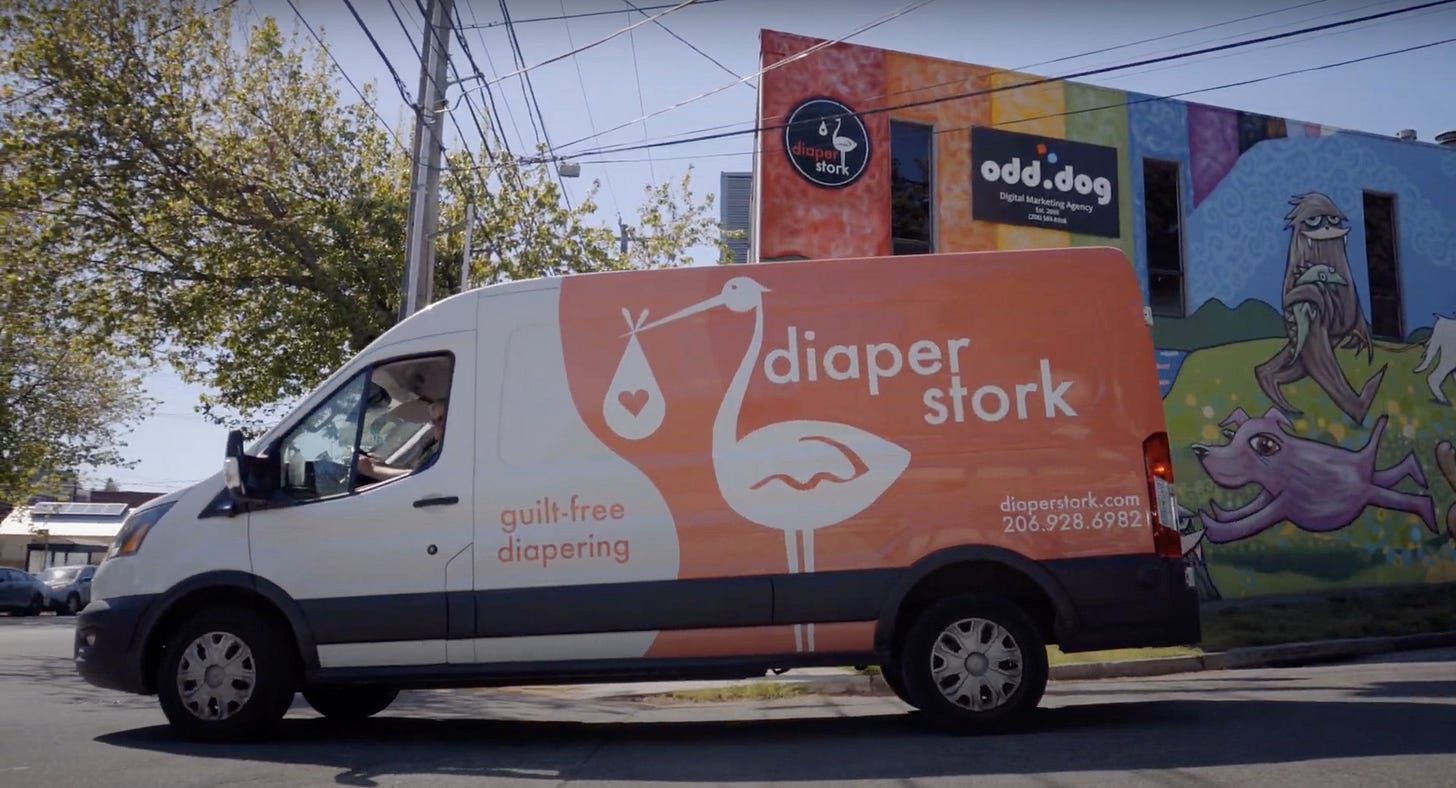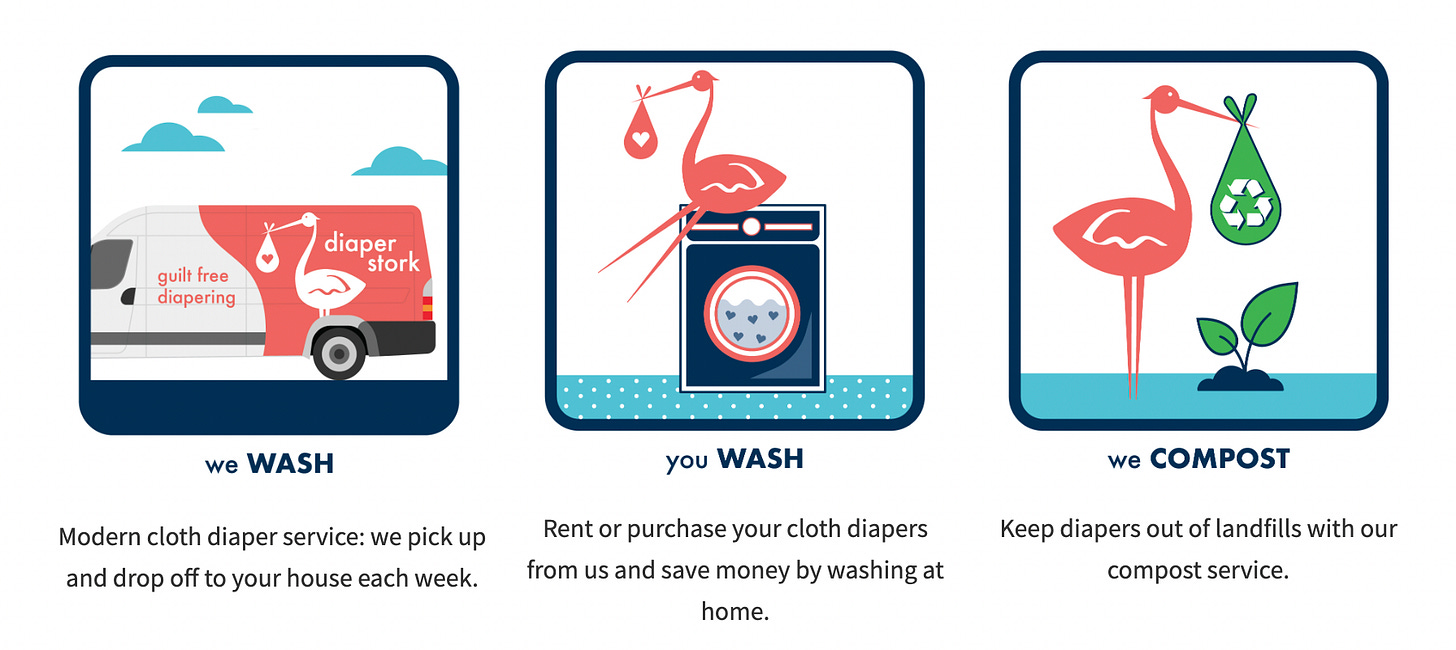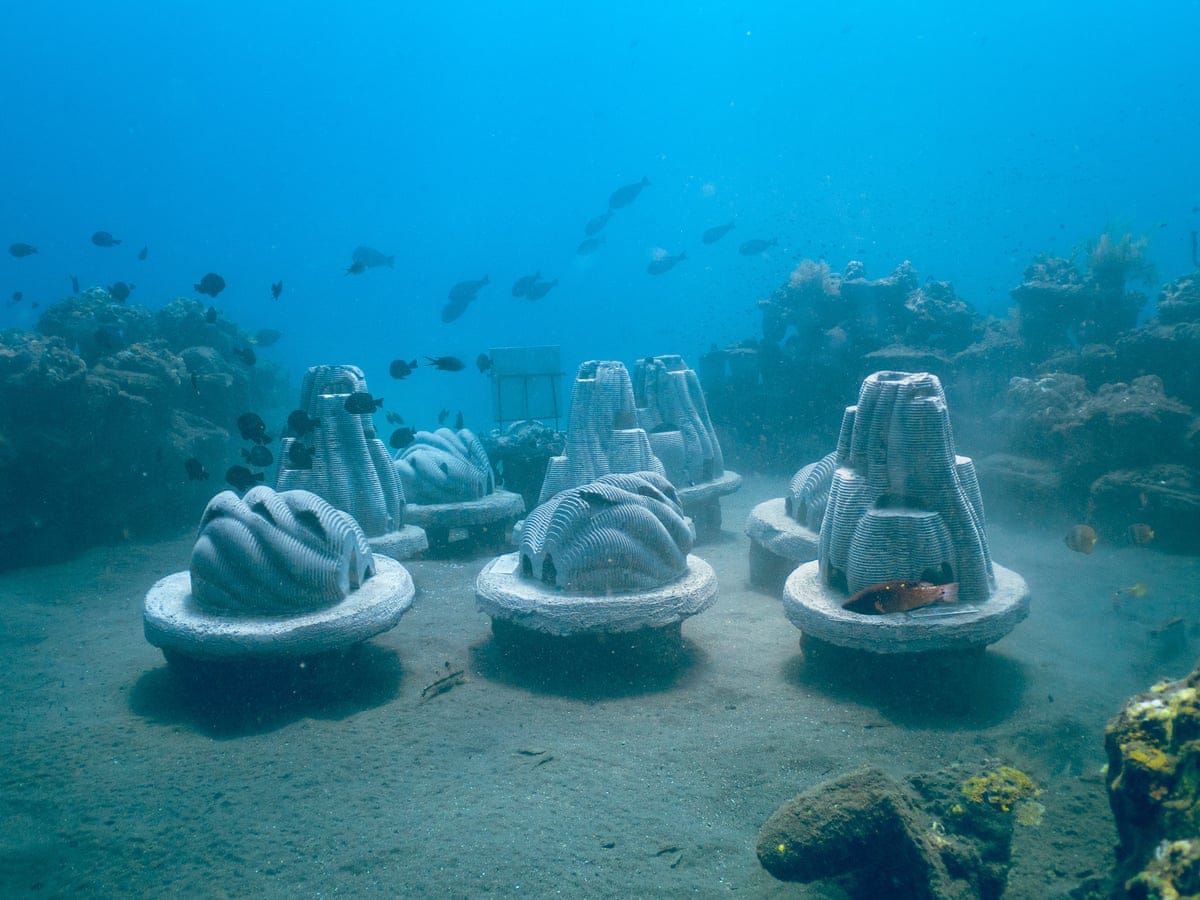How One Mom Turned Diapers Into Climate Solutions
From Poop to Purpose
Today’s sustainable snapshot👇🏽
How One Mom Turned Diapers Into Climate Solutions
Quiz Time!
Startup of the Week: Resting Reef
5 Sustainable Brands That I Recently Discovered
3 Stories That Lifted My Spirits This Week
How One Mom Turned Diapers Into Climate Solutions
When Carrie Pollak had her first child, she realized it was time for a career change. A former Amazon manager with a keen interest in sustainability, Carrie wanted to create a business that mattered.
That chance came in 2018 when she noticed a small cloth diaper service called Diaper Stork for sale in Seattle. Diaper Stork, at that time, was running a cloth diaper cleaning and subscription service in the Seattle area, where it picked up and washed the soiled linens weekly through a subscription service.
And if you are wondering why that is sustainable, well, Americans toss 20 billion disposable diapers into landfills every year. One disposable diaper can take up to 500 years to degrade, and just one child goes through roughly 6,000 before potty training.
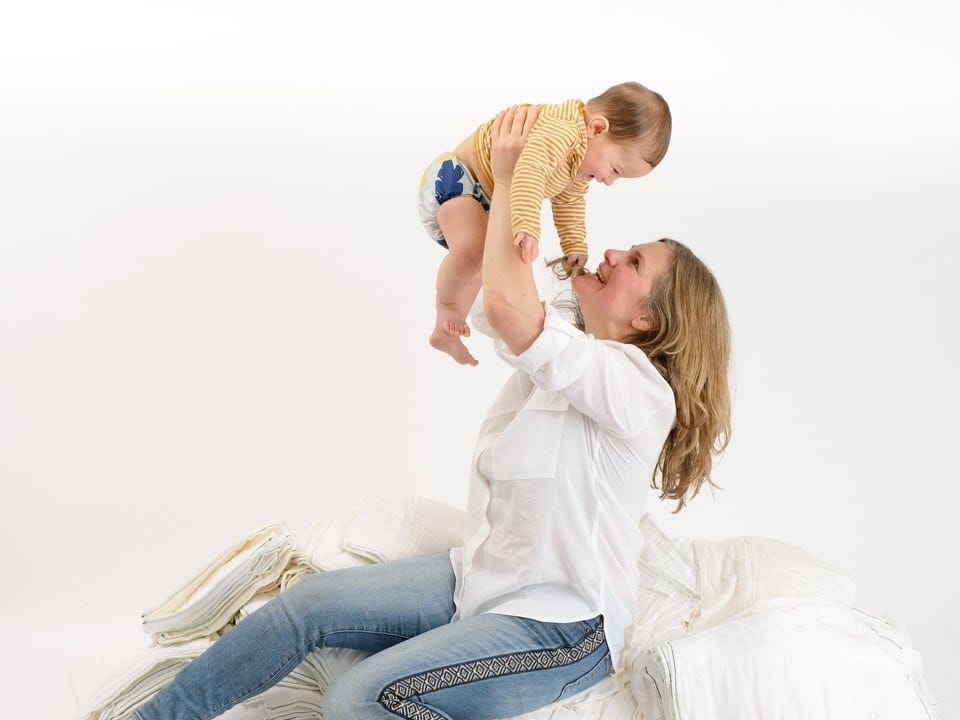
While cloth diapers are the most sustainable option, Carrie quickly realized they only serve about five percent of families. Most parents still want convenience, so she set out to find a solution that could reduce the environmental footprint of disposables.
Since 2023, Diaper Stork has offered compostable diapers to customers. But since soiled diapers cannot be home composted and most industrial composting facilities don’t accept them for sanitary reasons, Diaper Stork is composting these diapers themselves.
They do it in a pilot facility using pyrolysis, a high-heat process that transforms soiled diapers into biochar. This charcoal-like material can fertilize soil, purify water, and even remove pollutants from stormwater. They have even partnered with a Seattle coffee roaster and add leftover coffee chaff from them to optimize the process.
Their pilot composting facility is compact, housed in a 40-foot shipping container, designed to sit close to customers and reduce hauling emissions.
Carrie’s team has also tackled regulatory hurdles, securing grants and working within state guidelines to ensure human waste can safely be composted.
Diaper Stork is redefining how parents think about diapers. What was once just a messy necessity is now part of a climate-positive cycle, proving that even the most unlikely waste can have a second life.
⌛ Time for the quiz of the week
Note: Answer at the end of the newsletter. No one (including me) can see your response, so feel free to vote. 😉
✨ Startup of the Week: Resting Reef
This brand helps you convert your loved one’s ashes into a reef — a sustainable way to honor their life.
Burial these days is less accessible. Cemeteries are running out of plots. Land is being allocated to other developments, leaving cremation as a default funeral choice. Unfortunately, it’s a carbon-intensive activity and harms the environment.
Resting Reef provides a compassionate alternative. One that’s sustainable as well.
It uses aquamation, an alkaline process for cremation.
It combines ashes with crushed oyster shells and concrete.
The end result is an oyster reef, which mimics the natural reefs.
These are anchored to the seabed at a depth of about 10 metres.
The reefs play a critical role in regenerating marine growth. They also filter water and prevent coastal erosion.
But we have lost a lot of them due to human activities. This solution aims to revive them. While helping you commemorate a loved one 💚
✅ 5 Sustainable Brands That I Recently Discovered
🇬🇧 29acacia: Transforms agricultural waste into high-performance, low-impact textiles.
🇩🇰 Elby: Creates EV charging solutions for city apartments.
🇸🇪 Kurb: Makes resale more accessible by bringing all known resale platforms in one place.
🇬🇧 Future Greens: Generates green energy from the byproducts of the food industry.
🇸🇪 endre: Help grid operators make smarter decisions in the world of an uncertain, rapidly changing energy landscape.
😹 3 Stories That Lifted My Spirits This Week
⚓ Global High Seas Treaty Becomes Reality
After years of negotiation, the High Seas Treaty (aka the Biodiversity Beyond National Jurisdiction / BBNJ Agreement) has reached the required 60 ratifications and will formally enter into force in early 2026. This landmark agreement provides for legally binding protection and governance of marine biodiversity in international waters, enables the creation of marine protected areas, mandates environmental impact assessments, and promotes equitable access to marine genetic resources — all critical for ocean resilience and climate regulation.
📊 Brazil Turns Surplus Clean Energy into Opportunity
Brazil is seeing a boom in crypto mining powered by surplus renewable electricity — miners are negotiating to tap excess wind and solar energy that would otherwise go unused. These operations act as flexible “loads” that can absorb clean energy during off-peak periods, helping utilities monetize energy that might otherwise be curtailed.
🌊 Floating Solar in Indonesia Powers Clean Growth
In West Java, Indonesia has begun building a 92 MW floating solar plant on the Saguling Reservoir. Once operational (by November 2026), the plant will generate over 130 gigawatt-hours per year, cutting emissions by around 104,000 tons. This is part of Indonesia’s push to expand its renewable energy capacity to 42.6 GW by 2034, with solar contributing 17.1 GW.
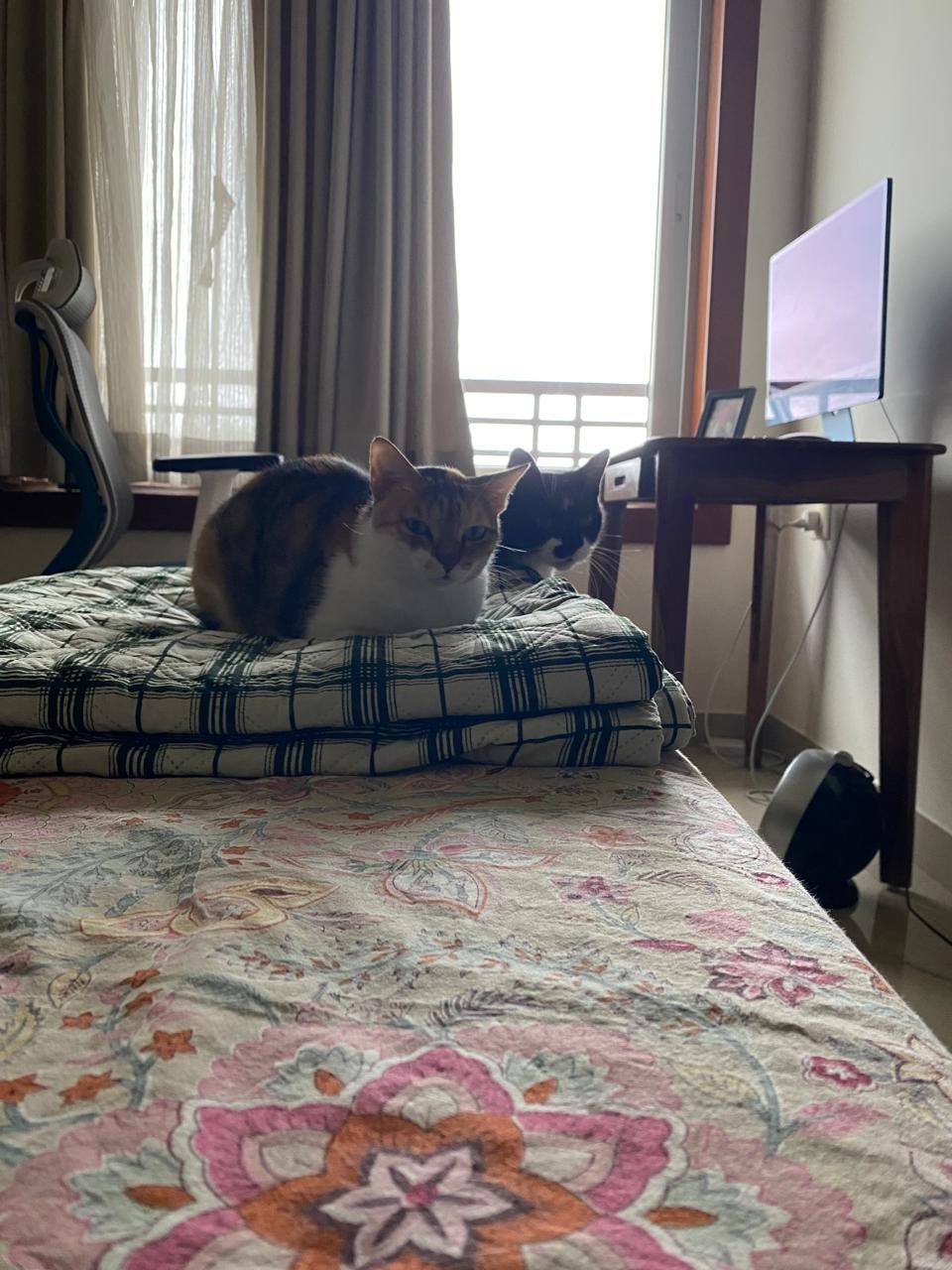
Give that 💚 a little tap if this edition helped you learn something new about sustainability and climate change. Have a good weekend :)


